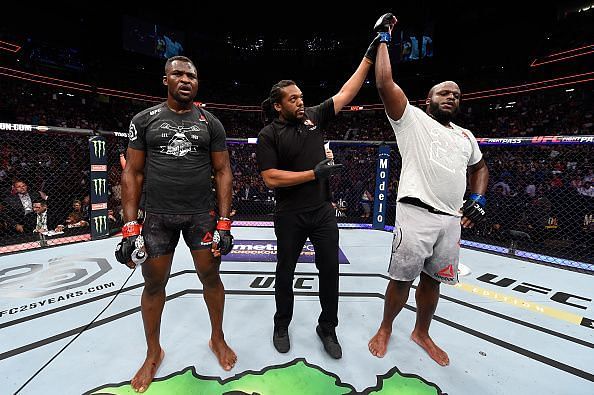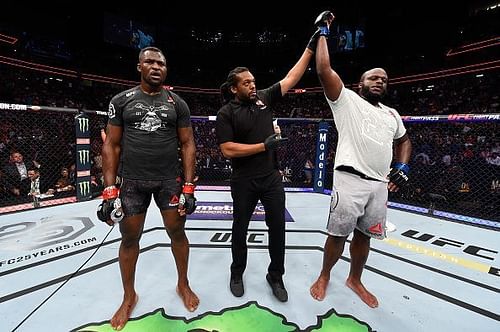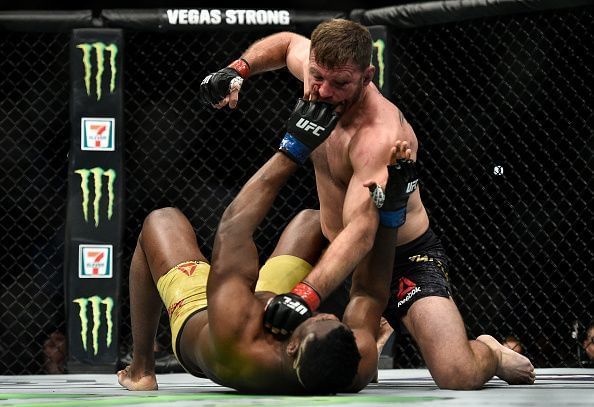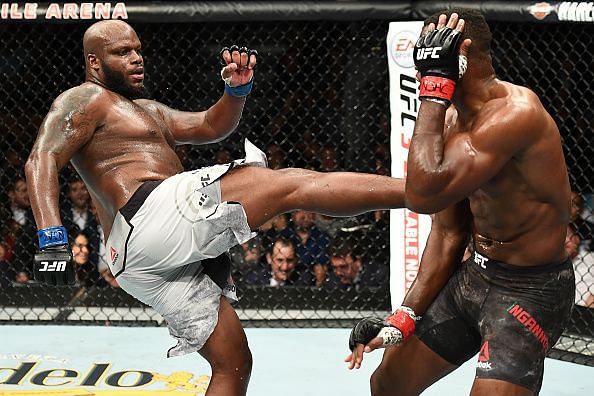
The rise and fall of Francis Ngannou

In the frenzy of Daniel Cormier's UFC 226 victory over Stipe Miocic and possible future duel with Brock Lesnar, the muffled capitulation of one of the heavyweight division's most promising talents rings even louder in contrast.
When Francis Ngannou started his career in the UFC in 2015, fans were taken by his impressive frame and his endearing rags to riches story.
The initial interest was justified by a string of impressive stoppage victories, pundits proclaimed him to be the next messiah of the heavyweight division and sponsors and promoters gushed at the young man's potential.
The horrific knockout of the flawed but dangerous Alistair Overeem seemed to signal the coming of a new era ruled by "The Predator".
Unfortunately, the dawn of this era was eclipsed by a perpetually underestimated champion in Stipe Miocic who used his varied skillset to stifle and neutralise Ngannou.
The post-fight analysis seemed to attribute much of the blame on Ngannou's uni-dimensional skill set, haphazard training, and Inexperience. One important aspect of Ngannou's defeat that seems to have slid under the radar at the time was the rigidity of his fight plan, i.e over-reliance on one-shot KO setups and insufficient fallback options.

Ngannou too felt that he lacked experience and was not yet fully exposed to all aspects of MMA, but was confident of coming back stronger.
He would have the chance to prove his detractors wrong five months later at UFC 226. Notably, a week before UFC 226 in response to a question about Lewis' fighting style, Ngannou responded,
“Instead of going forward, we will be smarter and go back to the Francis before the last fight. Watch my opponent, leave it, come to me, and as soon as he gives me the opportunity, I take it.”
This suggested more of a counter-striking approach as opposed to the aggressive knockout seeking strategy that seemed to tire him out against Miocic.
It seems a fair analysis, one which has been used to good effect by the likes of Tyrone Woodley and Yoel Romero to conserve energy and still be dangerous, but will it work for Ngannou?
The beginning of the fight saw Ngannou apply this strategy as he patiently awaited the blitz that Derrick Lewis was supposed to bring on. Instead, an ailing Lewis, limited by his back issues, was forced into a counter-striking role himself. This is where the inflexibility of Ngannou's game plan is laid bare.
Instead of effectively jabbing and trying to draw a response from Lewis, or launching his own calculated Blitzes ala Romero, Ngannou kept waiting for the mythical "perfect counter opportunity", which of course never came as far as he was concerned.
Lewis in the meantime was able to do the bare minimum required to keep the judges on his side in one of the most boring and lacklustre fights in the history of the heavyweight division.

The most concerning aspect of this performance was Ngannou's inability to make even the most basic changes to his approach, given the relative inactivity of his opponent. Ngannou looked tired, uninterested and did not grasp the importance of the opportunity afforded to him. It may also not be unfair to point out that Ngannou showed a lack of fight IQ as he timidly gifted the decision to Lewis.
The UFC media machine had been very upbeat about Ngannou's prospects until now, that might be coming to an end, the UFC may be having second thoughts about putting Ngannou in a prominent position on any future card.
In the UFC 226 post-fight press conference UFC president Dana White alluded to the quick rise of Ngannou and his past belief that Ngannou would be the next big thing, before stating,
"I think his ego ran away with him, big time,......., the minute that happens to you in the fight game, you see what happens, you start to fall apart,......, ego is what hurt Francis Ngannou."
White also alluded to his interactions with Ngannou and those of others in the organization where they felt Ngannou's ego was out of control, leading to his not training for the Miocic fight in any significant way.
Regardless of his shortcomings, the book on Ngannou has not been written yet, despite the blemishes, there is still time for him to reassess his life choices and come back stronger, what he needs is a guiding hand, perhaps a more established gym that would not put up with his indiscipline. A coach that truly puts him through the ringer might also be of some benefit.
Given his humble beginnings, his rise has been meteoric, he became a role model for migrants and refugees seeking a better life and an icon in his native Cameroon, it would be unfortunate if the potential of such a notable fighter remains unrealised.
Can Ngannou bounce back from his latest setback? Sound off your opinions in the comments section below!